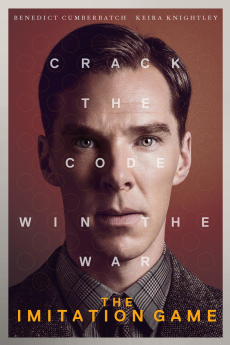
The Imitation Game is a film about British codebreakers in the Second World War, who managed to crack the “impossible” German Enigma code. By cracking this, it enabled the British Army to find out about surprise German attacks before they happened, giving them vital information that helped to shorten the war considerably. It also saved very many lives. It centres around Alan Turing, who becomes the leader of the group, and it explores his tragic personal life. The film came out last year, but was one of the most talked-about movies of the year. Let’s find out why.
The storyline of the film is not straightforward – it goes back and forth between the past and the “present”, which was 1950’s Manchester. Two policemen are investigating a break-in at Alan Turing’s home, but one of the pair is suspicious of Turing, and believes he is hiding something. When he goes on the hunt for information, he finds that Alan Turing’s military records had been destroyed. Turing begins to tell the story of how they broke Enigma at Bletchley Park, near Milton Keynes. The film then switches between his story and memories, and the present day. Though Turing was clearly unpopular at school, and never made many friends later in life, the film explores his struggle with homosexuality and his poor ability to work in a team. He faces opposition from his colleagues (and even blackmail), but eventually his machine works and is finally able to crack the Enigma code.
Sounds like a short film, right? Wrong. Once the code has been cracked, they must keep it a secret, in case spies find out and tell the Nazis to change the code. Here there are some serious moral issues – should they reveal the secret in order to save lives in surprise attacks, or should they keep it a secret in the hope the war will be shorter and there will be less deaths in the long run? A question not even logic geniuses like Turing and his fellow code-breakers could solve.
Most of the film takes place at Bletchley Park, the place where the code-breakers worked day and night to crack the code. The film has been criticised for its historical inaccuracy, suggesting that it was only a few people that cracked the code. In reality, there were thousands of people working on it right up until the end of the war. The film also suggested that Turing had some form of mental disorder, but this has never been proven.
That shouldn’t stop you from enjoying the film, though! Much of this film’s credit should go to the actors, who were all perfectly selected for the roles. Benedict Cumberbatch gives us a really emotive and interesting portrayal of Turing, and Keira Knightley plays the only female code breaker, in a departure from some of her other roles. Also having key roles in this film are national treasure Mark Strong, and Irish actor Allen Leech (or Tom Branson from Downton Abbey). The interaction between all these excellent actors really makes the film special.
As such, it’s been nominated for loads of awards, and it won an Oscar for Best Adapted Screenplay. Not bad for a historical film, eh? The critics love it, and so do audiences. Now it’s out on DVD, you’ve really got no excuse not to see this film. It will open your eyes about the horrors of war, and how awful life was for LGBT people in the very recent past.
Image from: http://www.newdvdreleasedates.com/m1927/the-imitation-game-dvd-release-date

0 Comment:
Be the first one to comment on this article.